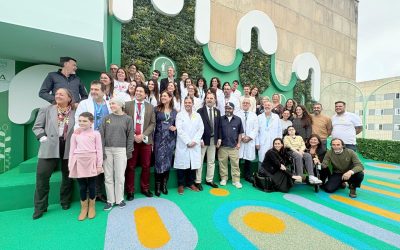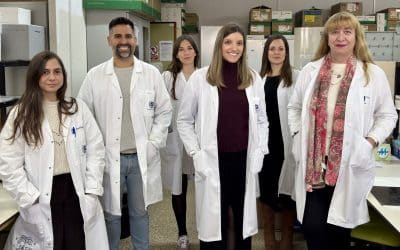The results of the research have been the subject of an international patent application and have been published in one of the world's leading pharmacology journals.
In a major scientific breakthrough, researchers from the Biomedical Research Institute of Malaga and Nanomedicine Platform (IBIMA Plataforma BIONAND) and the Regional University Hospital of Malaga, in collaboration with the biotechnology company EURONUTRA, have revealed the promising role of D-Pinitol, an inositol present in a natural extract of carob, in the modulation of the Tau protein, an essential element in the generation of neurodegenerative dementias, collectively known as tauopathies.
This discovery represents a major scientific breakthrough with the potential to have a positive impact on the treatment of diseases such as Alzheimer's, frontotemporal dementia and progressive supranuclear palsy. The results of this collaboration, which combines innovation with Mediterranean botanical tradition, have been patented internationally and have been highlighted in the prestigious ‘British Journal of Pharmacology’.
Euronutra, based in the heart of the Málaga TechPark - Parque Tecnológico de Andalucía - in Málaga, is dedicated to the research and development of innovative solutions for chronic diseases, covering key areas such as neuroscience and cardiovascular health. With more than 25 years of experience, the company has pioneered the manufacture of D-Pinitol and other natural bioactives, exemplifying its leadership in the creation of sustainable and advanced therapies.
Dr Fernando Rodríguez de Fonseca, researcher in charge of the Institute's Neuropsychopharmacology group, attached to the Mental Health Clinical Management Unit of the Regional Hospital of Málaga, said: ‘This achievement represents a turning point in our search for more effective therapies for complex disorders of the nervous system’. He added: ‘The research process has required meticulous analysis and in-depth exploration to arrive at these results.’ Dina Medina Vera, a PhD student at the University of Malaga, will soon defend her doctoral thesis which has focused on characterising this effect of D-Pinitol, which she has been studying for the past four years.
Carlos Sanjuan, CEO of Euronutra, has highlighted: ‘The synergy sustained with the research teams and IBIMA Plataforma BIONAND has been fundamental to boost innovation in our company, allowing us to extend our science and technology globally’. Furthermore, Sanjuan underlines the value of this collaboration: ‘This finding not only scientifically validates our compound, but also opens doors to new pharmaceutical applications previously unexplored.’ The studies have been funded through public-private collaboration instruments such as the Andalusian Regional Government's tractor projects, the Ministry of Science and Innovation's Retos-Colaboración projects and the Carlos III Health Institute's technological development projects.
Isabel Guerrero, head of the Innovation and Technology Transfer Unit at IBIMA, commented: ‘This is a magnificent example of the positive impact that public-private collaboration and technology transfer have on accelerating the development of innovative products aimed at improving health’.
IBIMA Plataforma BIONAND, extending its presence beyond the public hospitals in Malaga to the Andalusia Technology Park, is consolidating its position as a benchmark in biomedical research, committed to promoting open and collaborative innovation in the sector.



